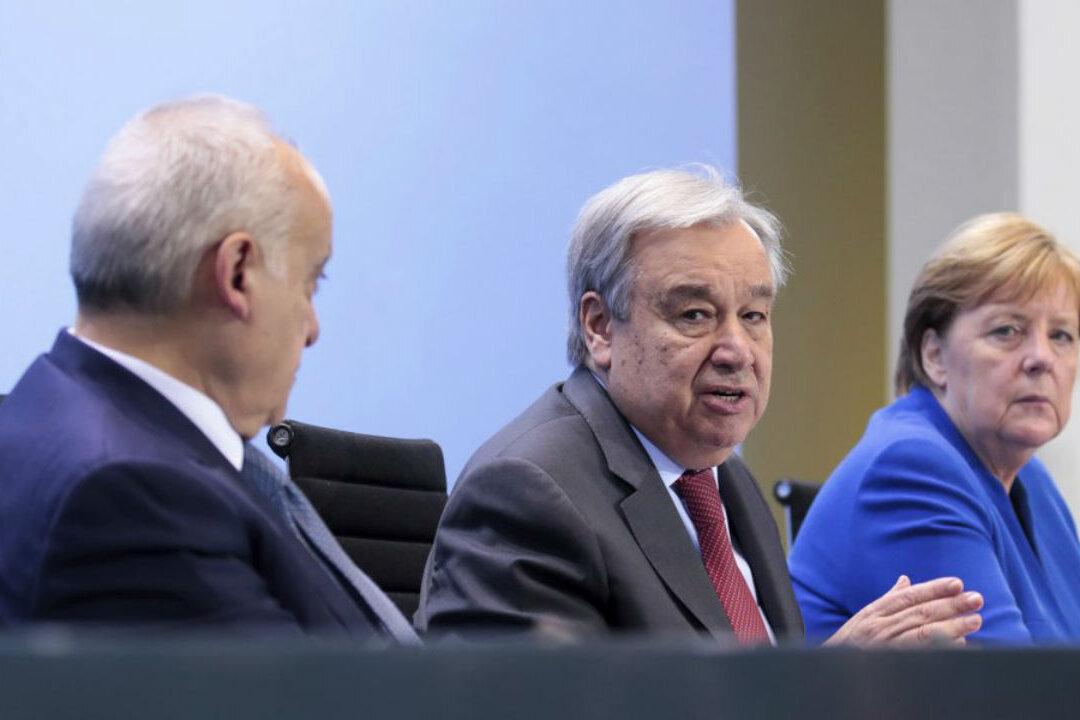BERLIN—Countries with interests in Libya’s long-running civil war agreed Sunday to respect a much-violated arms embargo, hold off on military support to the warring parties and push them to reach a full cease-fire, German and U.N. leaders said.
The agreement came after about four hours of talks at the chancellery in Berlin. German Chancellor Anglea Merkel hosted leaders of 11 countries involved in the conflict, with Libya’s two main rival leaders also in the German capital but not at the main conference table.





